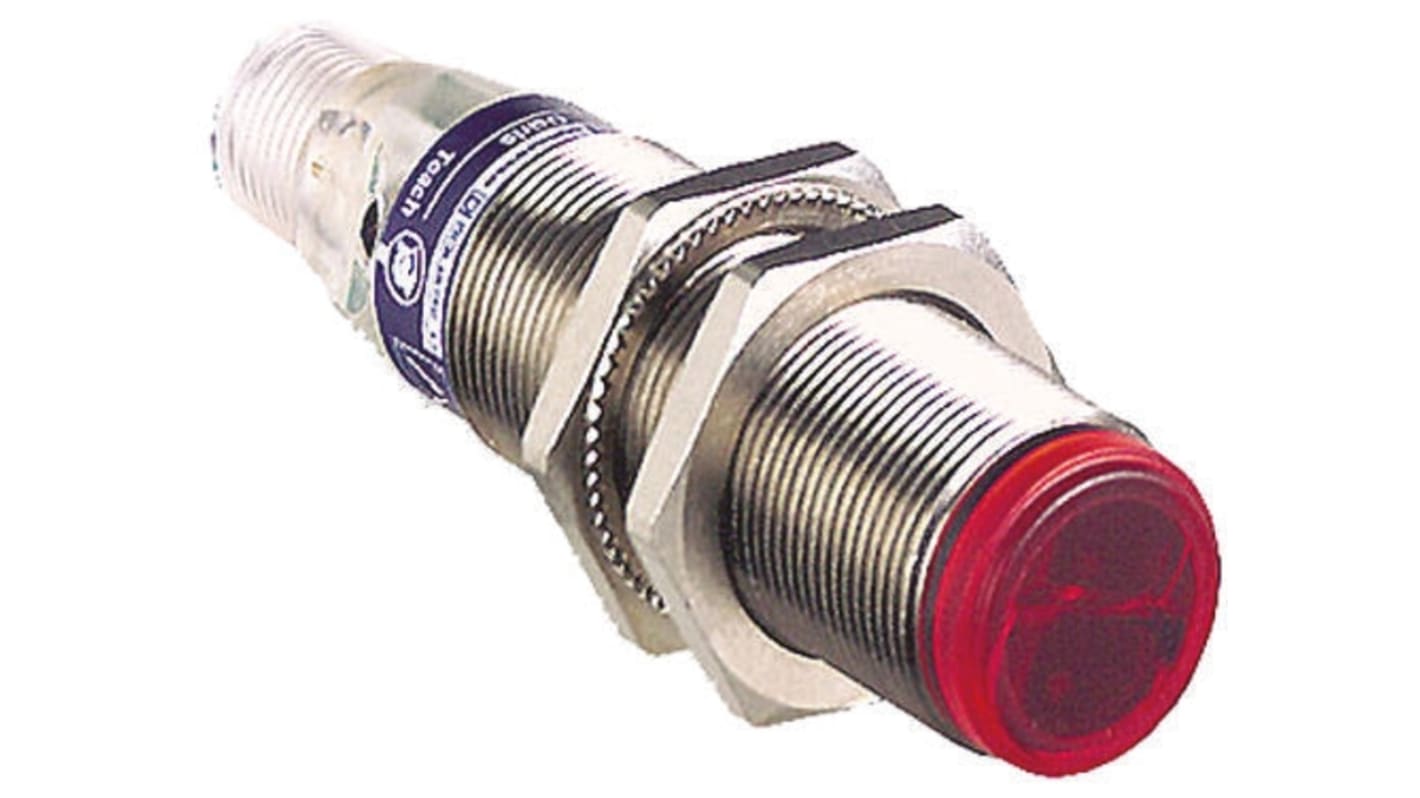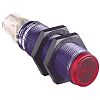Telemecanique Sensors Diffuse Photoelectric Sensor, Barrel Sensor, 0.6 m Detection Range
- RS庫存編號:
- 752-5054
- 製造零件編號:
- XUB5BNBNM12
- 製造商:
- Telemecanique Sensors
此產品已停售
替代產品
該產品我們目前不提供。 這是我們推薦的替代產品。
- RS庫存編號:
- 752-5054
- 製造零件編號:
- XUB5BNBNM12
- 製造商:
- Telemecanique Sensors
- COO (Country of Origin):
- ID
M18 cylindrical photoelectric sensors
The OsiSense XU general purpose photo-electric sensor from Schneider is available in single mode or multi-mode versions in the following formats: Reflex (XUB 1); Thru-beam (XUB 2); Diffuse (XUB 4); Diffuse with adjustable sensitivity (XUB 5); Polarised reflex (XUB 9).
M18 cylindrical photoelectric sensors in plastic or metal housing
Short-circuit protection and LED status indicator
Single or multi-mode function
2m cable or M12 connector (4 pin) output
Short-circuit protection and LED status indicator
Single or multi-mode function
2m cable or M12 connector (4 pin) output
How do they work and where can I use them?
- An OsiSense Photoelectric has a light beam transmitter (light-emitting diode, LED) and a light-sensitive receiver (photo-transistor). A light-emitting diode is an electronic semi-conductor component emitting light when electric current flows through it. The light can be visible or invisible, depending on the transmission wavelength.
- An object is detected when it enters the transmitted light beam and, in so doing, affects the intensity of the light at the receiver.
- Depending on the model and application requirements, the transmission beam is either non-visible infrared or ultraviolet (for detection of luminescent materials). It may also be a visible red or green (for colour mark reading etc.) and laser red (for long sensing distance and short focal length).
- The advantage of LEDs is their very fast response. To render the system insensitive to ambient light, the current flowing through the LED is modulated to produce a pulsed light transmission. Only the pulsed signal will be used by the photo-transistor and processed to control the load.
Photelectric Sensor Systems Available.
Through-Beam or Multimode (set in through-beam mode).
- Longer sensing distance – (up to 100 m – XUBL line).
- Precise detection with high repeat accuracy.
- Not affected by colour or position angle.
- Good resistance to difficult environments – example- dust, dirt.
- When using several sensors ensure the sensors do not disrupt each other.
Polarised Reflex system or Multimode (with reflector accessory).
- Medium sensing distance – (up to 15 m).
- Precise detection.
- Only one unit wired.
- No effect on detection by colour or position angle.
- Visible Red beam transmission.
- When using several sensors ensure the sensors do not disrupt each other.
Multimode sensor (with reflector accessory).
- Easy alignment. 3 LEDs providing set-up assistance.Anti-interferance function (2 sensors can be used with no alignment precautions). Semi-transparent objects detected by using teach mode function.
Diffuse System or Multimode.
- Short sensing distance. Only one unit to be wired.
- Easy to use. Fast response. Low cost.
- Sensitive to background colours and the working environment (dirt, dust).
- When using several sensors ensure the sensors do not disrupt each other.
Optical Forks.
- Made from metal a strong and sturdy sensor suitable for packaging and conveying applications with label detection. No alignment needed in through-beam mode.
- Only one connection needed. LEDs. Adjustable or fixed. Detect small parts – minimum size detected to 0.05 mm.
- High switching frequency from 4 kHz to 25 kHz. – excellent for higher operating rates.
Attribute | Value |
|---|---|
| Sensor Style | Barrel |
| Detection Type | Diffuse |
| Detection Range | 0.6 m |
| Output Type | NPN, Solid State |
| Electrical Connection | 4-Pin M12 Connector |
| Maximum DC Voltage | 24V |
| Light Source | Infrared |
| IP Rating | IP65, IP67 |
| Maximum Current | 100 mA |
| Response Time | <1 ms |
| Housing Material | Nickel Plated Brass |
| Maximum Operating Temperature | +55°C |
| Minimum Operating Temperature | -25°C |


